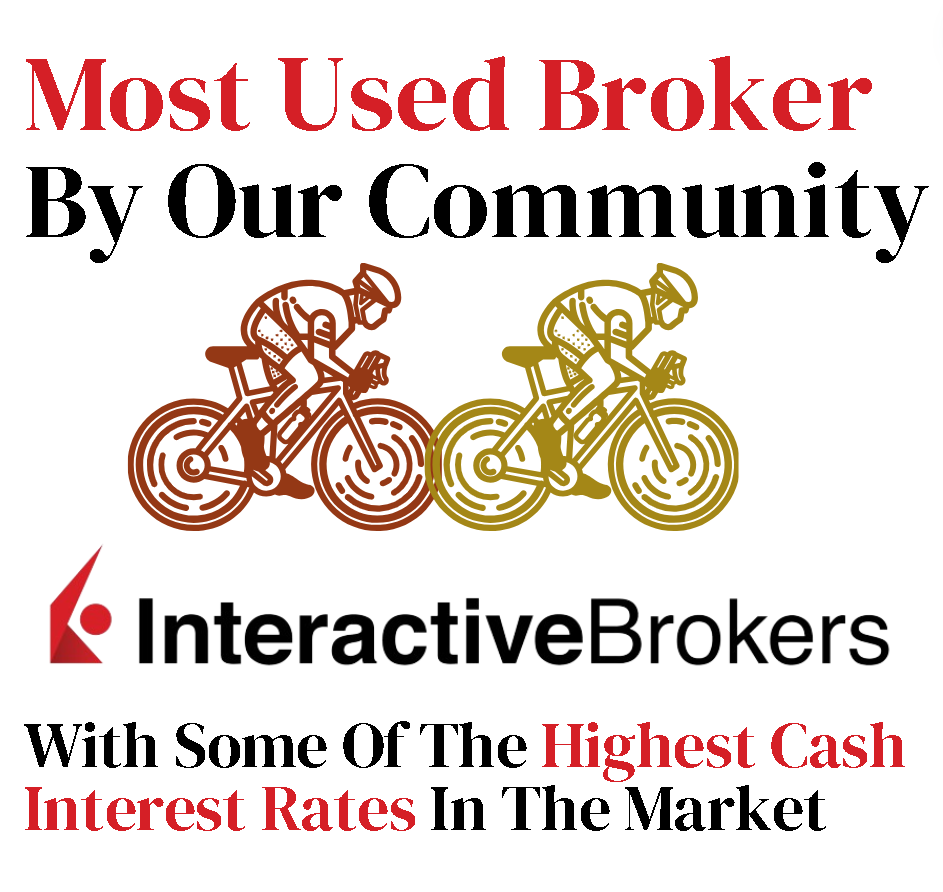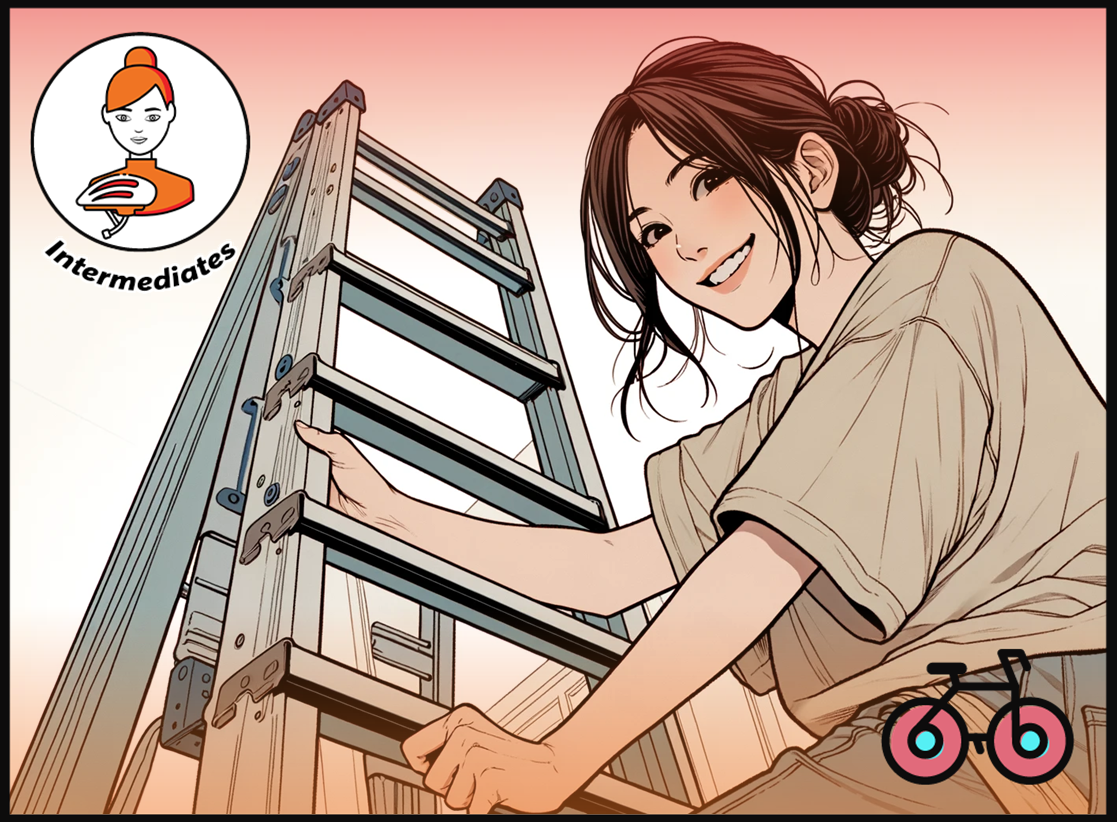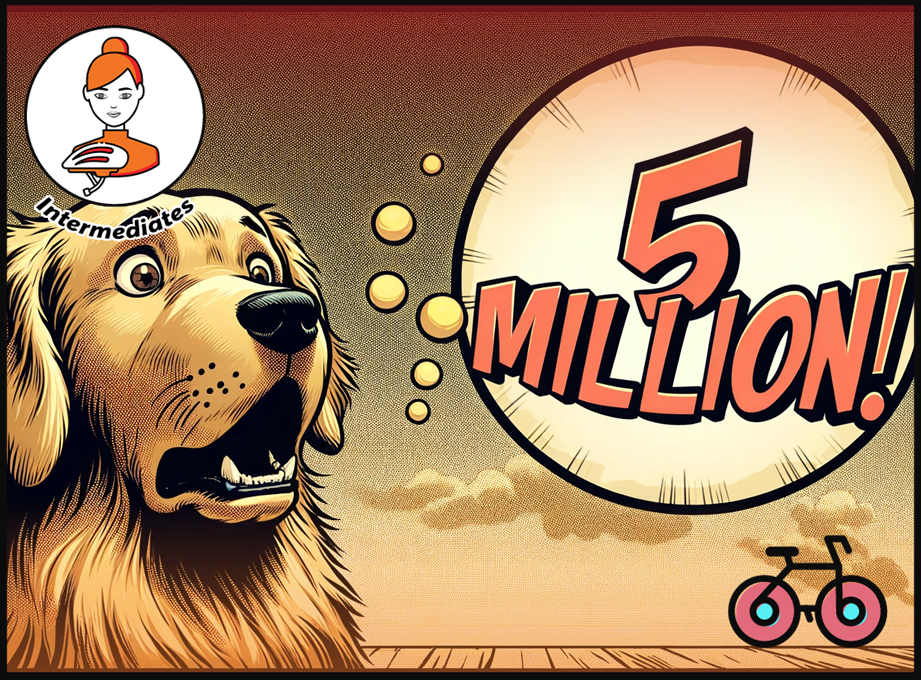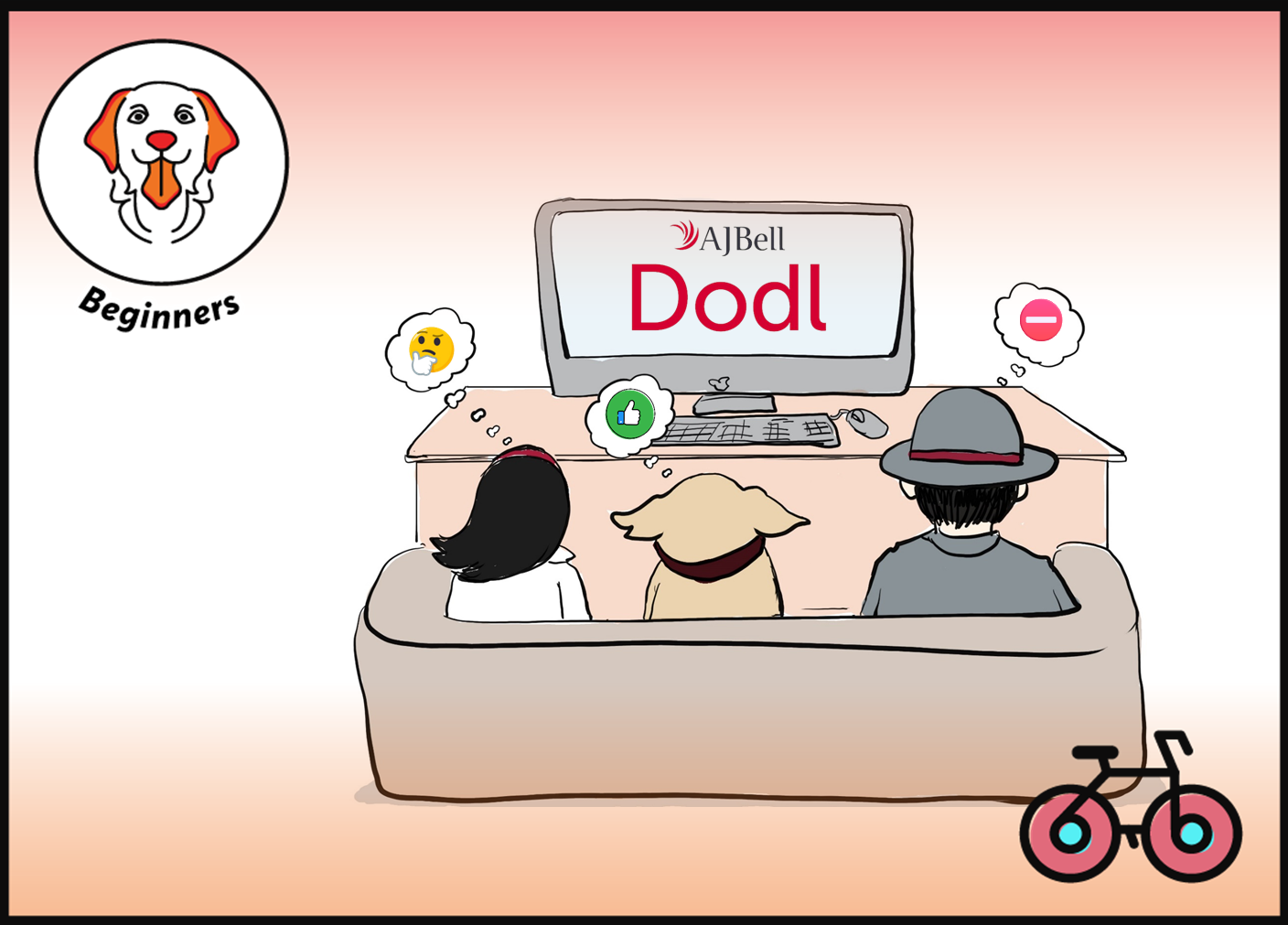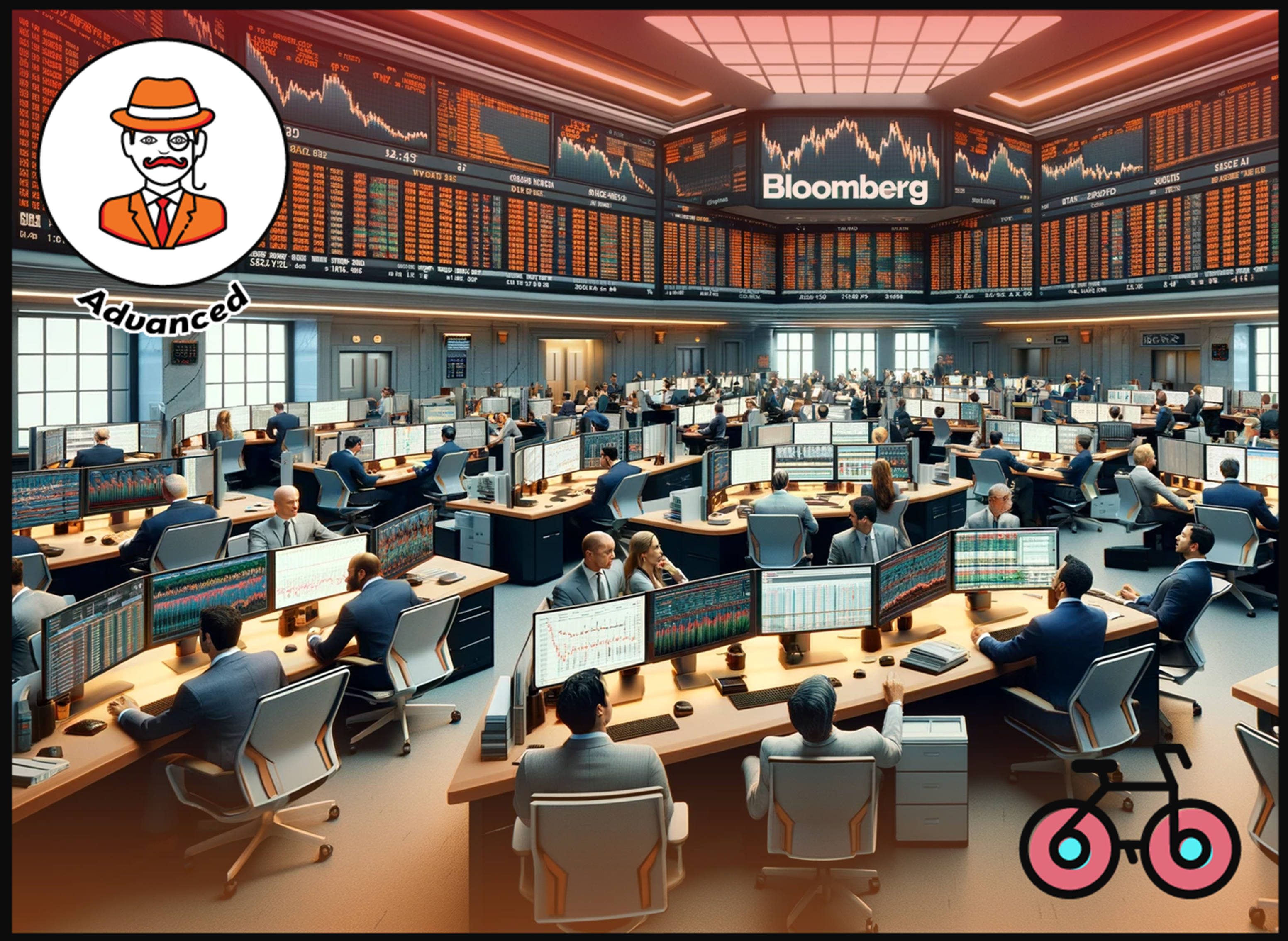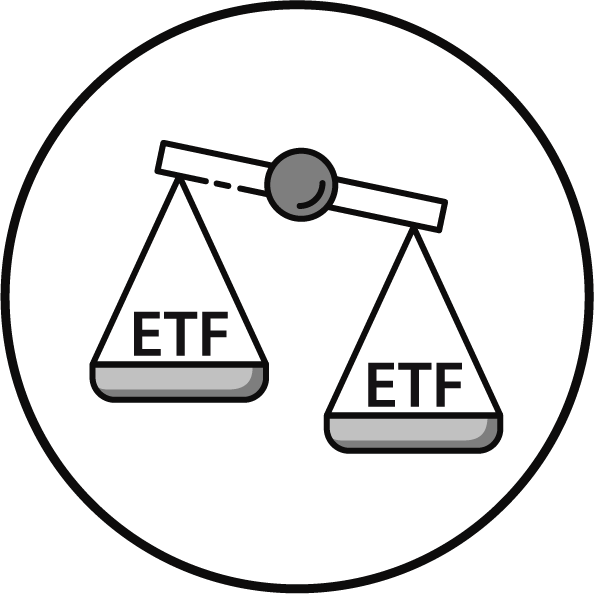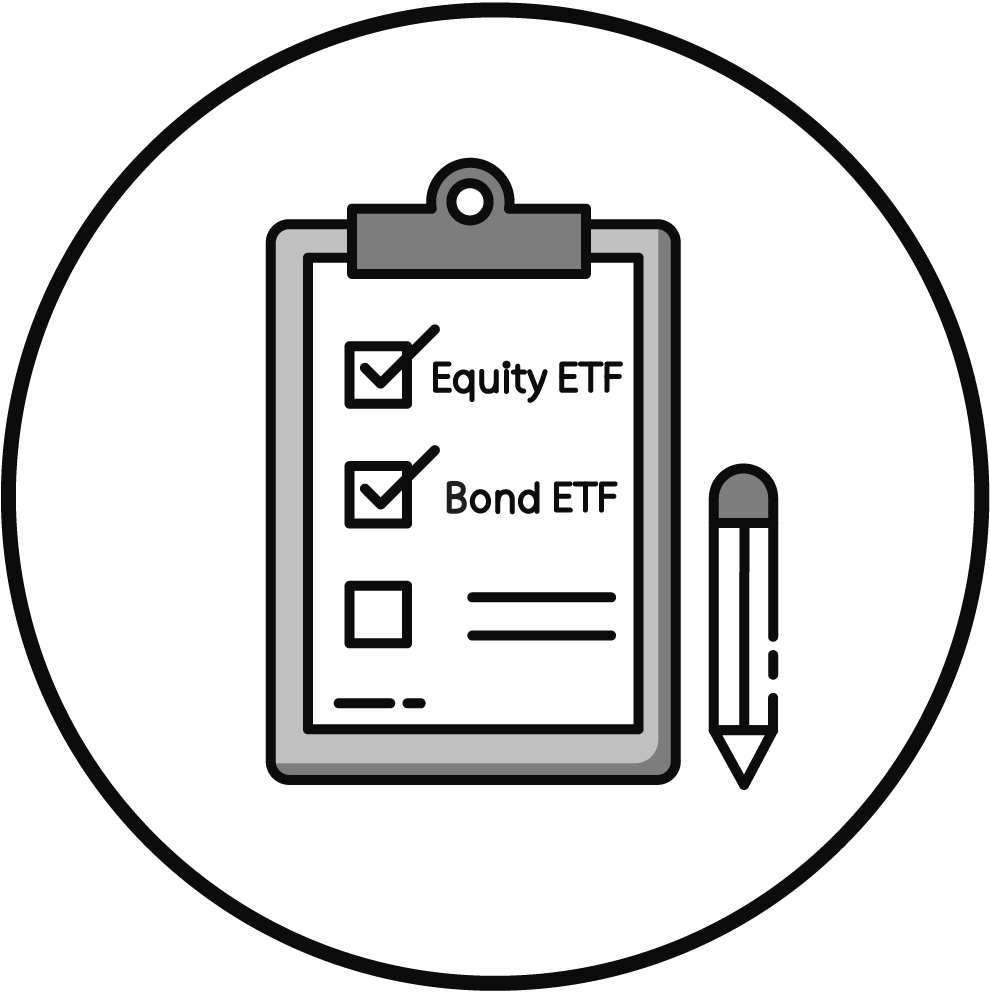From Tibet To California – 8 Investing Lessons From Cycling The World
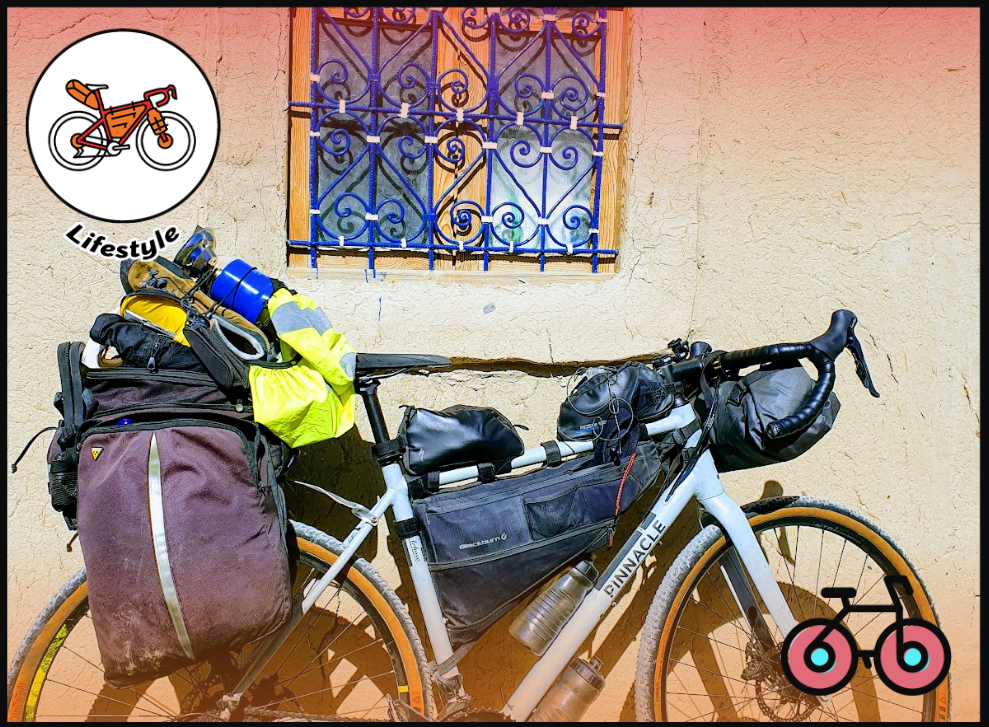
One of the biggest misconceptions and most frequent question that people ask adventure cyclists is whether they’re lonely. It couldn’t be further away from reality.
These adventures are some of the most exciting and enriching human experiences you can have. However, when on your bike, you inevitably end up alone.
With your mind, music or audiobooks. There is a lot of time to think, learn about yourself and your limits. Some cycling experiences profoundly changed me, but also my way of looking at investing.
You may think that spending 15 years on Wall Street would teach me more about successful investing than cycling.
Surprisingly, Wise Money is more about perspective than technicals.
Here are 9 Investing lessons I learned from Cycling the World.
KEY TAKEAWAYS
- You only race against yourself – you have strengths, even compared to pros.
- Crashes are guaranteed – and outside your control. Making your portfolio robust is.
- What can go wrong, will go wrong – investing errors will add years to your working life.
- Ego is the enemy – being right for the wrong reasons is a big mistake.
- Optimists triumph – being pessimistic will cost you a lot.
- It’s not about the bike – the price you pay is important.
- It’s all about the journey – optimise for Happiness, Health and Energy.
- The best time was yesterday, the second best is now – take the leap.
Here is the full analysis
#1 You only race against yourself
From Tibet to Busan, Korea
In Korea, I cycled the Seoul to Busan Four Rivers trail alongside Dimitri, a Russian adventure cycling enthusiast. The cycling infrastructure in Korea is mind-blowing, rivaled only by a few European countries — notably, the Netherlands and Denmark.
At that time, I was at the top of my game. Dimitri sought to challenge me, not realising the odds were already heavily in my favour.
I had just returned from China, where I spent weeks cycling in Tibet at an average altitude of 3,200m (10,500 feet) above sea level.
My lung capacity and red blood cell count hit an all-time high.
Even with my all-season 20 kg touring gear loaded onto my 11 kg gravel bike, the competition was uneven.
However, there were times, like outside Taipei in Taiwan, when I couldn’t match the pace of other cyclists, especially after an injury and under less-than-ideal conditions. The days I choose to challenge myself, I try to keep in mind to improve my capacity vs. myself yesterday not vs. others since we’re never fighting the same fight.
Investing Lesson
First, avoid comparing your portfolio performance to your friend. The risk you took was probably different. In investing, it’s essential to understand your unique strengths, advantages, and conditions that make you succeed.
You’d think the comparison with pros is not favourable to you. But, you may even have a lot of advantages over professional asset managers – you don’t face client pressure, have time on your side, no career risk and may have an emotional distance to investing. Your portfolio is small and flexible.
In both cycling and investing, the real competition is with oneself, not with the crowd.
❤️🐶 Shop & Support - Celebrate our 4th anniversary! 4️⃣🎂
Spread the Golden Retriever Wisdom Across Europe & the UK 😎
Banker On Wheels is 4 years old! To celebrate our anniversary we have launched the official merchandise store – Shop.Bankeronwheels.com. You can now get your favourite Golden Retriever, or your factor tilt on a coffee mug or a T-Shirt while supporting our cause! All profits are reinvested into creating more educational content. Alternatively, you can also buy us a coffee. Thank you for all your support ❤️
#2 Crashes are bound to happen
Broken ribs in Okinawa, Japan
I tried hard to avoid any events that would put a hard stop to my adventures. But I nevertheless ended up with mishaps.
I had two major crashes.
The first happened when I cycled Japan from North to South. I managed to recover in Taiwan, where a friend I met in Hokkaido hosted me. I recovered from my broken ribs. It was an amazing experience to be hosted by a local family and learn so much about Asia’s complex history and Taiwan’s hidden cycling gems.
The second happened after I cycled the California of the Muslim World – Morocco. The crash left me unable to cycle much longer.
Investing Lesson
Investing, like cycling, is a risky endeavour.
You can minimise risks, but you won’t avoid crashes, because factors causing them are totally outside your control.
Prepare your portfolio for the worst, as it will hit you when you least expect it. Not long ago, Inflation was very remote risk. Today, deflation may seem like one. Do you have assets that will perform well in a prolonged deflationary downturn? There are ways to deal with a market crashes, and even take advantage of them.
Taiwan, The Cycling Heart Of Asia.
Murphy's Law from Tasmania to Mount Fuji
Murphy’s Law, so vividly depicted in the movie “Interstellar”, is just as applicable to cycling. It doesn’t imply that something negative is bound to happen, but rather that anything that can happen will indeed occur.
I began my adventure cycling in Tasmania, Australia, a place that exudes a unique ‘edge of the world’ ambiance. Initially, I was unaware of the importance of every component working seamlessly on a long-distance cycling journey.
During my preliminary few-day excursions in Southern Europe, a merely adequate setup sufficed. But, after hundreds, then thousands of miles across Australia and New Zealand, it caused problems.
Near Mount Fuji in Japan, every pedal stroke caused sharp pain in my knee. Minor adjustments in your cycling configuration can have detrimental effects on the body. It’s essential to anticipate every potential mishap with your bicycle. This principle is also true for mechanical hiccups. If you’re lacking that spare screw in the Australian desert, chances are you’ll end up damaging or misplacing the primary one.
Investing Lesson
Your strategy will be tested by the market. If you don’t understand it, you will pay the price. Probably by selling at the worst moment.
Also, tax or fee cash flow leaks will accumulate and have a material impact over time.
Paying 0.5% more in fund fees, or an extra 15% in invisible taxes when choosing the wrong ETF, may not seem like much over a few months. But play with a calculator to understand what it means when small leakages out your portfolio compound to major consequences over a few decades.
Are you ready to pay the price for those mistakes and work longer?
#4 Ego is the enemy
Vipassana Meditation in British Columbia, Canada
I first learned about Vipassana through a friend at the Asset Management firm where we both worked. As an adventure cyclist, the idea of meditation via the Vipassana technique felt like a worthwhile exploration, offering a welcome 10-day break from cycling.
One profound realisation from those intense sessions was the understanding that the ego can be a formidable adversary.
It also taught me one great lesson. To define me outside of my career.
Many in the finance sector grapple with their sense of identity and ego.
As some Bankers aim for Early Retirement, they are secretly scared of the idea of being stripped of the status and prestige that comes with their job.
Much more than losing an income stream.
Investing Lesson
Check your ego at the door when investing. Thinking you’re ahead of the curve? Ask yourself: Can I truly out-predict professional investors? Predicting immediate market shifts is one thing, but can you foresee the second or higher-order effects that drive markets?
Look at 9 charts that show how difficult is active investing.
What if it was luck, not skill, that drove a few of your past successful bets?
Being right in the past for the wrong reasons, because you didn’t understand it was luck, can inflate your ego, and have the worst consequences in the long run.
Exceptional hospitality on the West Coast, US
The beauty of travelling on a bike is reaching destinations and people you wouldn’t normally have access to.
You inevitably gain faith in humanity with all the help you receive on a daily basis.
In North America, I was hosted by different locals, every single day, for three weeks in a row. In Seattle, five warmshowers hosts even competed between them to host me. Crazy.
Needless to say, it is a whole different experience from a hyper-competitive, cut-throat Wall Street environment.
Last April, I received a message from someone that hosted me in Iwate, Japan. He said that it was the anniversary of me randomly visiting his camping. The fact he remembered me was mind blowing. A year before, I arrived around midnight, exhausted after a long day on a bike. He offered me a dinner around a campfire and a breakfast the next day. I am immensely grateful for all the help I received. That’s why I also started this blog, to pay forward some of the kindness.
Investing Lesson
Optimism and trust in humanity are key for investors because, the global economy will persist and advance.
Even amidst setbacks, human innovation and collaboration ensure continuous economic progress. This long term growth in corporate profits is what inherently drives markets always higher.
Check the Geeky Sections in this article to understand why Equity markets always go up.
Shiretoko National Park, Hokkaido, Japan.
#6 It's not about the bike
Pareto Principle applied to cycling
The Pareto principle states that you can achieve 80% of results with 20% of effort. The same applies to bikes.
I have a Canyon Ultimate CF SLX , that I bought back in 2018 following the advice of other more experienced road-cycling colleagues.
But I now much rather ride my gravel bike that is 5x cheaper. And performance-wise, the difference is not that massive.
Investing Lesson
Investing isn’t about chasing the highest-priced assets.
The costlier option doesn’t necessarily deliver higher returns. In fact, it’s either high price today or high return tomorrow. Never both.
#7 It's All about the journey
Carpe Diem, on any road
I recently spoke to a friend who is a semi-pro cyclist. Yes, the guys that do 500 km or 300 miles in a single day.
He told me that Tour de France participants almost never have the time to look around when they cycle and enjoy any of it.
There is a French expression borrowed from cycling – avoir la tête dans le guidon – which could be translated as keeping your head between the handlebars. Literally.
A Japanese cyclist friend, told me in Okinawa that she somewhat regrets having cycled Japan from Kyushu to Hokkaido only to realise that the journey should have been slower to really make the most of it.
Investing Lesson
Having a goal, like Financial Independence or Early Retirement, is a great source of motivation.
But you’re not a Tour de France cyclist. You can enjoy the view. Think about the bigger picture.
This is a multidimensional game. Wealth is just part of it. Don’t forget about the other ones – Happiness, Health, and Energy.
Road to Mount Cook, New Zealand.
From Bankeronwheels.com
Get Wise The Most Relevant Independent Weekly Insights For Individual Investors In Europe & the UK
Liked the quality of our guides? There is more. Every week we release new guides, tools and compile the best insights from all corners of the web related to investing, early retirement & lifestyle along with exclusive articles, and way more. Probably the best newsletter for Individual Investors in Europe and the UK. Try it. Feel free to unsubscribe at any time.
🎁 In the first email, you can download a FREE comprehensive 2-page checklist to construct & monitor your portfolio and clean up your personal finances.
#8 The Best Time was yesterday, the Second best is now
sea level to a 3,300m mountain Pass in one day, Taiwan
People often ask me how much do you need to train before going on a world cycling adventure. Well, not much. I started cycling in 2017. While I was busy analysing Fixed Income deals in Southern Europe, I used the opportunity to stay there over the weekends.
Some of my favourite spots included Sa Calobra (Mallorca), Col de la Madone (South of France), or Cap Corse (Corsica). But I never cycled more than a couple of hundreds of miles during a weekend before embarking on a World cycling adventure.
The same applies to climbing hills and mountains on a bike. I started with steep, small hills in the UK. A couple of years later, my longest day was climbing from sea level to a mountain pass of 3,300m (11,000 feet).
The most difficult part was leaving the City of London, without a plan of coming back. It seemed scary given the uncertain world we live in.
Also, to have no expectations for my next 12 months. Tim Ferriss’ framework, helped me when I decided in Autumn 2018 to plan my biggest adventure yet.
Needless to say, it was one of the best decisions I’ve ever made.
Investing Lesson
Just start investing. Even if the market is close to an all-time high. Or seems overvalued. It may seem scary. So is buying the market when the S&P 500 falls 10% in a single day.
Investing small chunks over time, if that can help. Small steps and persistence will pay off and in the long run, and you will be rewarded.
Start now and read the 10 Steps to start investing.
CYCLING INSPIRATIONS
(Top 9 Roads, ex-Europe, I would ride again tomorrow)
- Qinghai Lake, Tibetan Plateau, China (Wikipedia)
- Wuling Pass, Taroko National Park, Taiwan (DangerousRoads.org)
- Starlight Highway, Mount Cook National Park, New Zealand (IMB)
- Shiretoko National Park, Hokkaido, Japan (Japan Guide)
- Jacobs Ladder, Tasmania, Australia (DangerousRoads.Org)
- R704, High Atlas, Morocco (DangerousRoads.org)
- Crater Lake, Oregon, USA (Wikipedia)
- Cape Hedo & North Okinawa, Japan (Visit Okinawa)
- Around the Mountains Trail, South Island, New Zealand (NewZealand.com)
Good Luck and Keep’em* Rolling!
(* Wheels & Dividends)

Weekend Reading – BlackRock Launches New iBonds, Truth About €1M Broker Insurance & BOW is 4 years old!
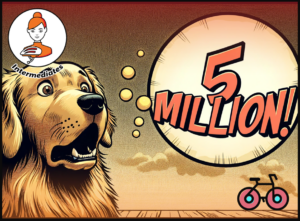
The Truth About €1 Million Broker Guarantees

4 Things I Learned In 4 Years Of Running A Finance Blog
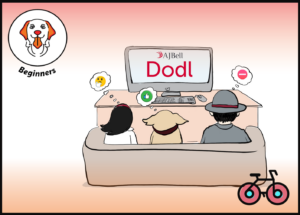
Dodl By AJ Bell Review – AJ Bell’s Younger Brother

Vanguard LifeStrategy Review – A Retriever In A Babushka Doll
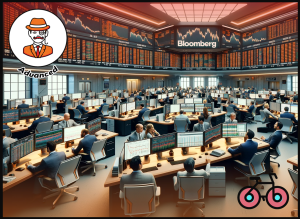
Why Do Portfolio Managers Care About Factors? It’s Not What You Think.
HELP US
🙋 Wondering why finding honest Investing Guidance is so difficult? That’s because running an independent website like ours is very hard work. If You Found Value In Our Content And Wish To Support Our Mission To Help Others, Consider:
- 📞 setting up a coaching session
- ☕ Treating us to a coffee
- 🐶 Purchasing Our Official Merchandise
- ❤️ Exploring Other ways to support our growth, both financially and non-financially.
DISCLAIMER
All information found here, including any ideas, opinions, views, predictions expressed or implied herein, are for informational, entertainment or educational purposes only and do not constitute financial advice. Consider the appropriateness of the information having regard to your objectives, financial situation and needs, and seek professional advice where appropriate. Read our full terms and conditions.






